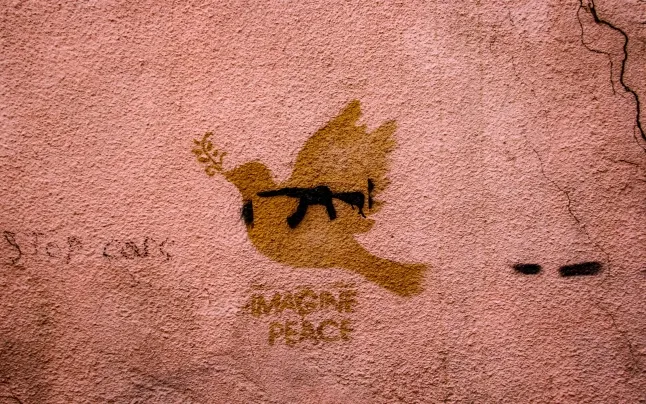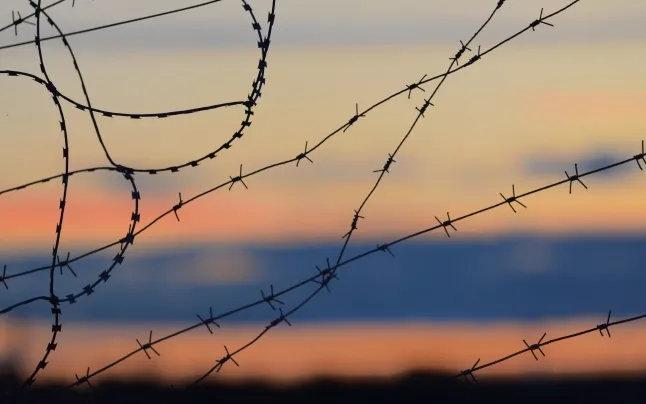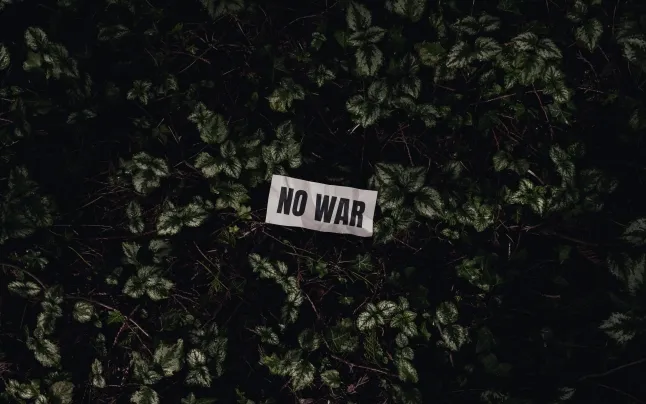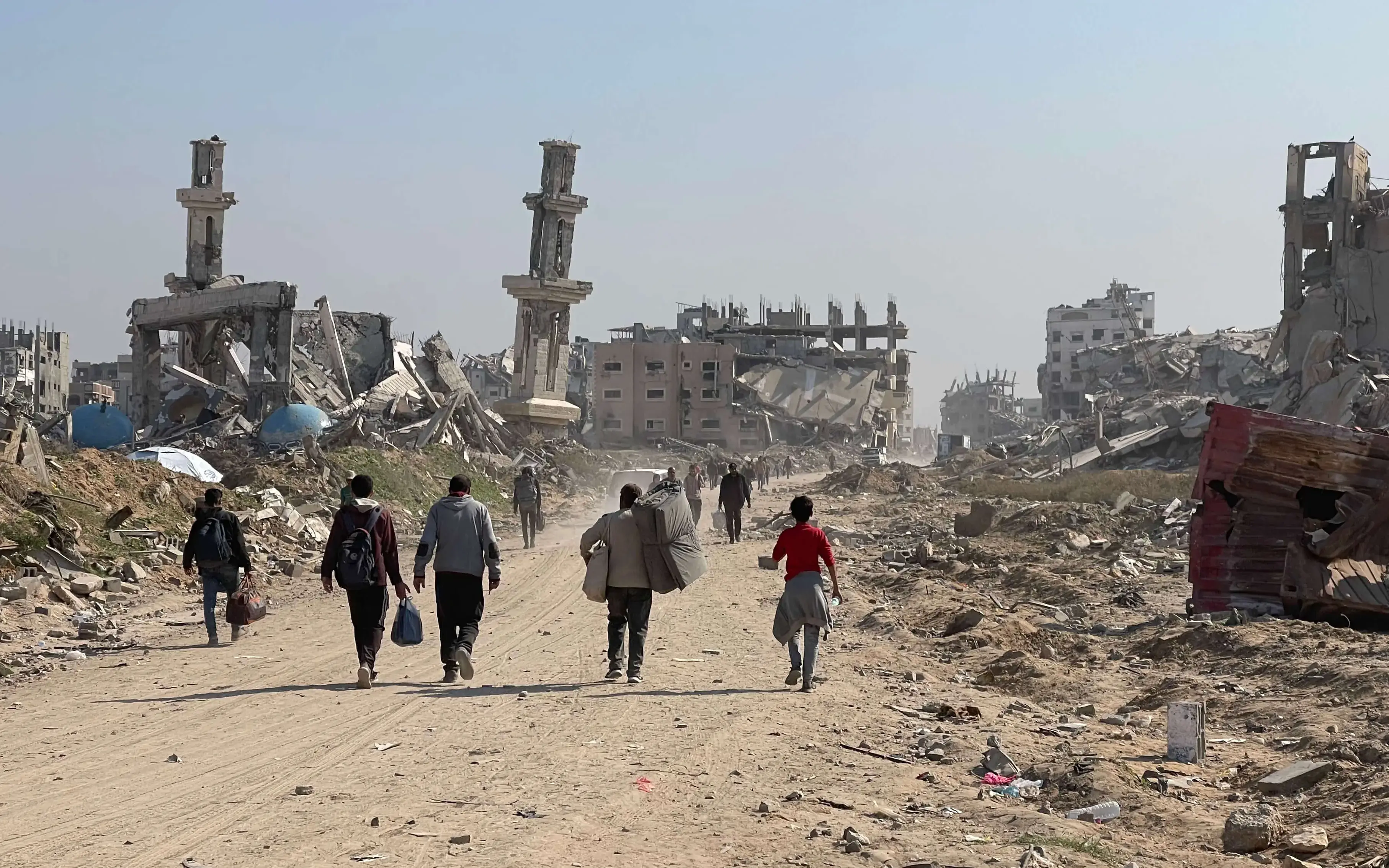The School for a Culture of Peace's report, ‘Alerta 2022!’, analyzes armed conflicts and tensions in the world, while identifying opportunities for peacebuilding.
Europe is facing one of the biggest impacts in its recent history following the Russian invasion of Ukraine, which threatens the stability of a world that is already in turmoil. The war broke out more than a hundred days ago, and we have already seen the first - and not at all encouraging - side effects: rising military spending on a global scale, accelerating the pace of rearmament and the return of militaristic discourse everywhere.
In this context, the School for a Culture of Peace (ECP) has published the report ‘Alerta 2022!’, which has been published annually since 2001 and analyzes the state of the world in terms of conflict and peacebuilding. It does so by traversing three main axes: armed conflict; tensions; and gender, peace and security.
Conflicts, tensions and risk scenarios
Among the most relevant findings of the report, the ECP has identified thirty-two armed conflicts in the world in 2021, a slightly lower figure than the previous year. Most are concentrated in Africa, with fifteen; in Asia, with nine; and in the Middle East, with five. Europe and America have two and one, respectively.
In addition, for the first time in a decade, high-intensity armed conflict accounts for more than half of the total. These include countries such as Cameroon, Ethiopia, Mali, Mozambique, the Democratic Republic of the Congo (DRC), Yemen, Syria and South Sudan, among others.
The report highlights the failure of the call by UN Secretary-General António Guterres to declare a global ceasefire and focus all efforts on responding to the covid-19 health emergency. On the contrary, the document shows that the context of the pandemic has amplified and aggravated the impact of armed conflict on the civilian population, with more casualties than in previous years.
The ECP also highlights the persistence of sexual and gender-based violence in the world, which mainly affects women and girls; and highlights data from the United Nations High Commissioner for Refugees (UNHCR), which put the number of people forcibly displaced at 82.4 million at the end of 2020. Today, and largely due to the war of 'Ukraine, this figure already exceeds the barrier of one hundred million.
In terms of tensions, ninety-eight cases were identified during 2021, three more than in 2020, which reinforces an upward trend in recent years with regard to the socio-political crises that are shaking the world. Again, Africa is the region with the largest number of countries - followed by the Americas - and the most intense, such as Chad, Ethiopia, Guinea and Kenya, among others.
The organization's analysts also highlight six areas of risk, scenarios of armed conflict and tension that are highly likely to worsen and become more serious sources of violence during this 2022. The report talks about the several coups that have taken place in Africa, the conflict between the DRC and Uganda, Myanmar, Indonesia (Sulawesi), Bosnia-Herzegovina and Palestine.
Five scenarios for working on peacebuilding in 2022
In addition to analyzing armed conflicts in the world, the study also turns its attention to scenarios that could constitute opportunities for peace in 2022. These are contexts - five, in particular - where a conflict situation exists or has existed and which, for various reasons, may undergo a positive transformation that opens the doors to peace.
However, it warns that fostering a peace-building context will require the real effort and commitment of the parties involved, as well as the support of international actors to develop and enhance the positive synergies that govern these expectations for change.
- National dialogue in Chad: a process full of uncertainties to build peace
The process of dialogue in Chad can open a window of opportunity that will help end the endemic fragility and instability that the African country has been dragging for decades. The death of President Idriss Déby in a fight against the rebels in April 2021, just after he was re-elected, triggered a military coup that did not foresee a pleasant future for the country.
The coup led to a military junta of generals close to the president who placed his son, Mahamat Déby, at the head of the Transitional Military Council (CMT) in charge of governing the country. In this context, the transitional authorities, however, announced a process of inclusive national dialogue that has begun and should culminate in a political opening and the return to power of a civilian government.
However, the success of this fragile transition requires overcoming the climate of mistrust with the country's elites, who are leading the process; as well as the involvement of international actors such as France and the African Union and the monitoring of organized and mobilized civil society.
Without forgetting the full range of complex and interrelated challenges that need to be addressed in the country, the dialogue process can draw a path that lays the groundwork for a more hopeful and violence-free future.
- Commitment of India and Pakistan to consolidate escalation of violence on the Line of Control
In November 2003, India and Pakistan agreed to a ceasefire on the Line of Control, the military border between the two countries in the territory of Jammu and Kashmir. This led to a series of measures to improve communication in the area and led to a start of dialogue between the two parties.
Over the years, the failure of talks and the deterioration of relations between the two countries was noted, which resulted in a systematic violation of the ceasefire and more episodes of violence at the border, which had the peak in 2020.
Until February 2021, when the governments of India and Pakistan agreed to resume commitments on the ceasefire declared in 2003. The renewal of the agreement led to a new scenario of dialogue that, despite which has been disrupted, has reinforced a climate of cessation of violence at the border. This is undoubtedly a positive fact for the civilian population, a victim of the violent attacks carried out by both parties.
However, the report warns that we must persevere in the challenge of achieving a rapprochement between the two countries that goes beyond the ceasefire and focuses on the central issues of the struggle that has been facing them for decades.
- A new opportunity for negotiations in Venezuela?
The South American country has been immersed for decades in a socio-political, economic and humanitarian crisis that has had serious consequences for the civilian population. As an example, UNHCR has noted that the country's insecurity, violence and economic and health situation have forced 5.9 million Venezuelans to flee their homes, making it the second largest country in the world with more displaced people, just behind Syria.
The political crisis in the country worsened in 2018 after the re-election of Nicolás Maduro, in an election that the opposition and much of the international community, led by the United States of Trump, considered fraudulent and led to a wide range of countries would recognize Juan Guaidó, then president of the National Assembly, as legitimate president, in addition to tightening international sanctions and pressure on the Maduro government.
An exponential pressure that failed to overthrow the Venezuelan Executive and that resulted in new attempts at negotiations involving the Maduro government - and which some voices consider to be a response to the country's worsening economic and humanitarian crisis as a result of sanctions - and part of the opposition.
Some internal and external changes in Venezuela, such as the relay of the Trump administration in the United States, have facilitated a dialogue that began in Mexico in August 2021, with the mediation of Norway and the support of Russia and the Netherlands, and has had the unanimous support of the international community.
In mid-October, the Maduro government withdrew from the negotiations, but all indications are that conditions are being maintained to resume this process, which could facilitate a scenario of greater cooperation and a way out of the multifactorial crisis that is plaguing the country.
- Expectations for improved relations between Turkey and Armenia
2021 has been the year in which expectations have been raised for improving the historically turbulent relationship between Turkey and Armenia. A confrontation that comes from afar, with dark chapters such as the Armenian genocide at the hands of the Ottoman Empire or, more recently, Turkish support for Azerbaijan in its dispute with Armenia over Nagorno-Karabakh status.
Thus, the ECP report points out that last year steps were taken to establish a dialogue and build bridges between the two countries. A new scenario favored by some changes in the region, such as the movements towards greater regional integration, especially economic.
However, this approach encounters important difficulties and challenges, such as incorporating broader actors, mechanisms and dialogue processes that are not limited to the elites and allow for dimensions such as social dialogue and enable true reconciliation.
- The Nuclear Non-Proliferation Treaty: The Beginning of a Path to End the Nuclear Threat?
The nuclear issue is key to addressing the challenges of international security and is "the top disarmament priority for the United Nations," said António Guterres, the organization's secretary general. The entry into force in 2021 of the Treaty on the Prohibition of Nuclear Weapons (TPAN) has been considered a significant step forward in this area.
Being part of the TPAN, now ratified and signed by sixty states and with the support of more than a hundred, binds the ban on the development, storage and use of nuclear weapons, among others, and the commitment of countries that have destroy them.
Although none of the nuclear powers have signed it or expressed a willingness to do so, they have begun to do so traditionally allied states of the countries that have them and could play an important role, as well as the civil society organizations that promote the treaty, in extending the agreement and promoting the denuclearization.
Thus, ending the global nuclear arsenal is more urgent today than ever, and much more so as a result of the exponential increase in tension between Russia and the countries of the Euro-Atlantic orbit, as the Russian invasion of Ukraine and the United States has clearly shown. Putin's threat, which has not hesitated to shake the nuclear scarecrow to curb NATO expansion.









Add new comment